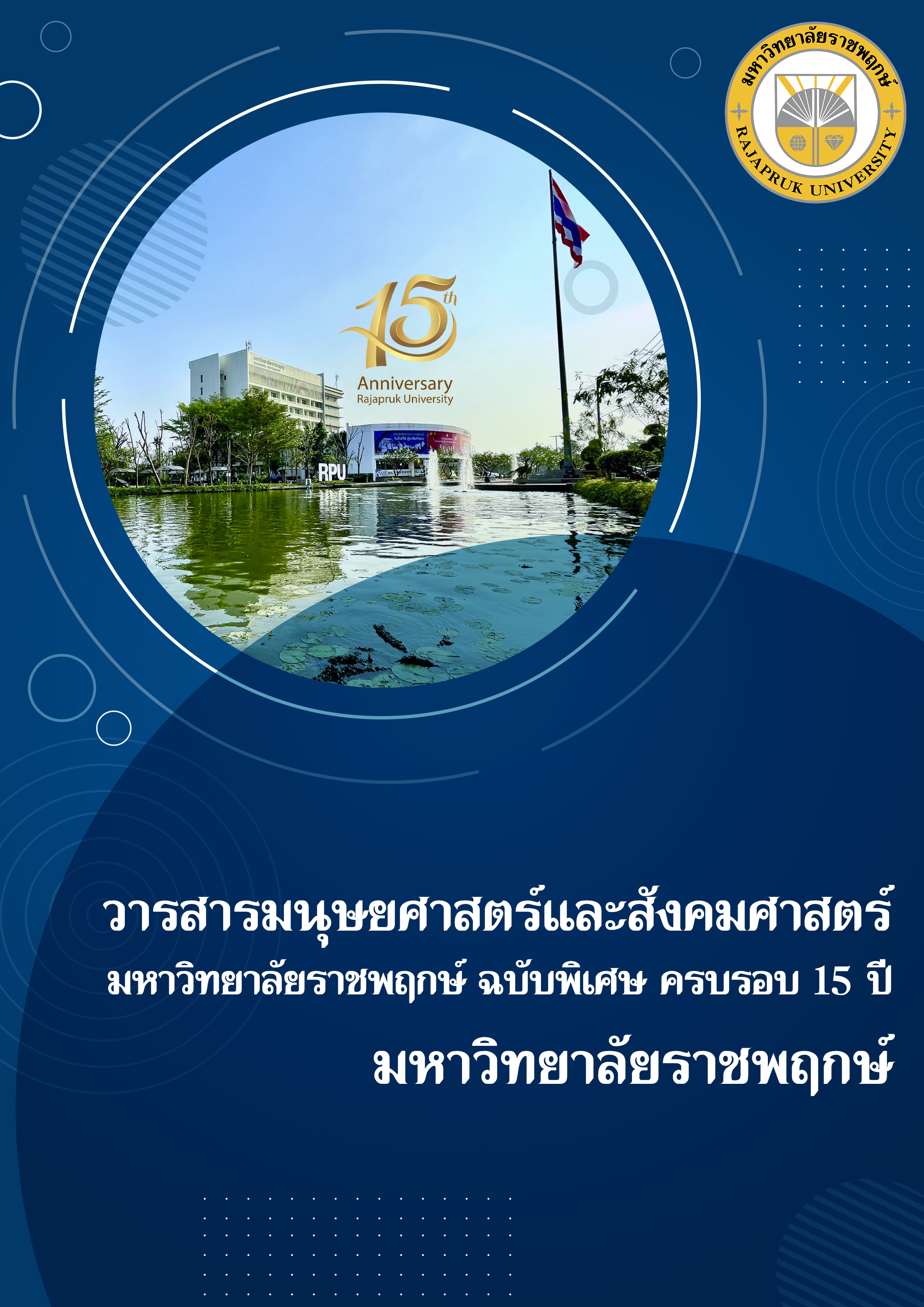Parent’s Roles in Promoting Saving the Environmental Behaviors of Kindergarteners in Thotawan Kindergarten School
Main Article Content
Abstract
The purpose of this research was to study parents’ role in promoting saving the environment behaviors of kindergarteners in Thotawan kindergarten school in 2 aspects: teaching environmentally-friendly and being a role model in saving the environmental. The populations used were 93 parents of level 3 preschoolers who study at Thotawan Kindergarten school in the second semester of the 2019 academic year. The research instruments were a questionnaire form. The data was analyzed using frequency distribution, percentage, arithmetic mean and standard deviation.
The research findings found that parents’ roles in promoting saving the environment behaviors of kindergarteners in all 2 aspects performed at a high level. Regarding each aspect, it was found that teaching environmentally-friendly was at the highest level, followed by being a role model in saving the environment. When considering these aspects, the research results showed that: 1) Teaching is environmentally-friendly: the highest means was to explain and show children how to save electricity at home, and the lowest means was to volunteer activities to save the environment with children. 2) Being a role model in saving the environment: the highest means was to reduce the use of plastic bags when shopping at stores, and the lowest was to recycle waste paper.
Article Details
References
กรมควบคุมมลพิษ. (2562). ข้อมูลตัวชี้วัด ปริมาณขยะมูลฝอยชุมชน. ค้นเมื่อวันที่ 11 สิงหาคม 2563, จาก http://www.onep.go.th/env_data/2019/ปริมาณขยะมูลฝอยชุมชน
กรมควบคุมมลพิษ. (ม.ป.ป.). ขยะสิ่งแวดล้อมจากขยะมูลฝอย. ค้นเมื่อวันที่ 3 ธันวาคม 2562, จาก http://www.pcd.go.th/info_serv/waste_rubbish.htm
คณะกรรมการส่งเสริมการพัฒนาเด็กและเยาวชนแห่งชาติ. (2561). แผนพัฒนาเด็กและเยาวชนแห่งชาติ ฉบับที่ 2 พ.ศ.2560–2564. ค้นเมื่อวันที่ 7 ธันวาคม 2562, จาก http://tpso4.m-society.go.th/images/DatabaseTPSO4/News_TPSO/Advertise/2562/PlanChilden2560-2564.pdf
ชูศรี วงศ์รัตนะ. (2550). เทคนิคการใช้สถิติเพื่อการวิจัย. พิมพ์ครั้งที่ 10. นนทบุรี: ไทยเนรมิตกิจ อินเตอร์ โปรเกรสซิฟ.
ณัฏฐภรณ์ หลาวทอง. (2561). การสร้างเครื่องมือการวิจัยทางการศึกษา. พิมพ์ครั้งที่ 2. กรุงเทพฯ: จุฬาลงกรณ์มหาวิทยาลัย.
นภเนตร ธรรมบวร. (2549). หลักสูตรการศึกษาปฐมวัย. กรุงเทพฯ: จุฬาลงกรณ์มหาวิทยาลัย.
บุบผา เรืองรอง. (2559). สอนลูกเรื่องอนุรักษ์สิ่งแวดล้อมดีอย่างไร. ค้นเมื่อวันที่ 3 มกราคม 2563, จาก http://oknation.nationtv.tv/blog/februarynews/2016/09/09/entry-1
เยาวพา เดชะคุปต์. (2542). การจัดการศึกษาสำหรับเด็กปฐมวัย. กรุงเทพฯ: แม็คเอ็ดดูเคชั่น.
ศูนย์นวัตกรรมการเรียนการสอน. (2554). การเรียนรู้ผ่านการลงมือทำ. ค้นเมื่อวันที่ 10 กรกฎาคม 2563, จาก http://dcil.kbu.ac.th/2011/05/31/
สำนักงานเลขาธิการสภาการศึกษา. (2550). การเรียนรู้ของเด็กไทยตามแนวคิดไฮสโคป. ค้นเมื่อวันที่ 1 กรกฎาคม 2563, จาก http://backoffice.onec.go.th/uploads/Book/414-file.pdf
สำนักงานเลขาธิการสภาการศึกษา. (2561). แนวแนะวิธีการเลี้ยงดู ดูแล และพัฒนาเด็กปฐมวัยตามสมรรถนะ เพื่อเพิ่มคุณภาพเด็กตามวัย 0-5 ปี. กรุงเทพฯ: พริกหวาน.
สำนักวิชาการและมาตรฐานการศึกษา. (2560). หลักสูตรการศึกษาปฐมวัย พุทธศักราช 2560. กรุงเทพฯ: ชุมชนสหกรณ์การเกษตรแห่งประเทศไทย.
องค์การยูนิเซฟ. (2553). โตมาแบบไหนอยู่ที่พ่อแม่ใส่ใจ ช่วงวัย 3-5 ปี. ค้นเมื่อวันที่ 5 มกราคม 2563, จาก https://www.unicef.or.th/leadgen/e-book/pdf/child-development- guideline-during-3-5-years-old.pdf
Francoise, B. (2009). Between school, family and media: do the children carry energy-saving messages and practices. Retrieved on August 15th, 2020, from https://www.eceee.org/static/media/uploads/site2/library/conference_proceedings/eceee_Summer_Studies/2009/Panel_8/8.391/paper.pdf
Matthies, E. (2012). The role of parental behaviour for the development of behaviour specific environmental norms–The example of recycling and re-use behaviour. Retrieved on August 12th, 2020, from https://naaee.org/eepro/research/library/role-parental-behaviour-development
Southwest Human Development. (2018). How to teach your child to protect the environment this earth day. Retrieved on February 10th, 2020, from https://www.swhd.org/how-to-teach-your-child-to-protect-the-environment-this-earth-day/
WHO. (2018). More than 90% of the world’s children breathe toxic air every day. Retrieved on February 20th, 2020, from https://www.who.int/news-room/detail/29-10-2018-more-than-90-of-the-world%E2%80%99s-children-breathe-toxic-air-every-day


